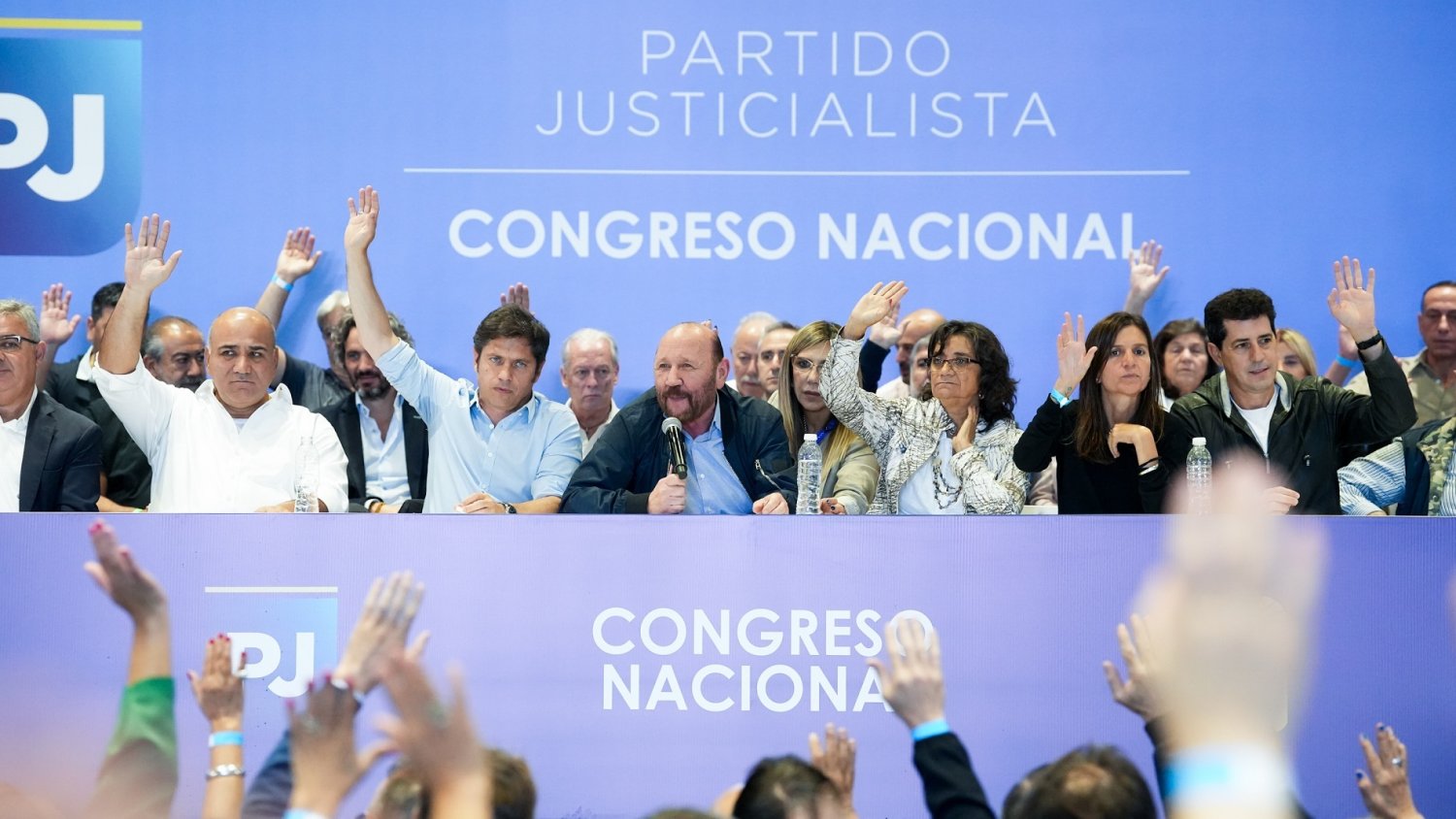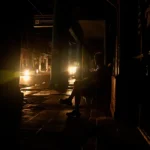
After the tough electoral defeat in November, the PJ finally carried out its Congress. In the midst of hot weather and full of reproaches, in the hallways of the Ferro microstadium the same phrase was repeated over and over again: “Reorganize Peronism.” But the main question, in moments of chainsaw and blender, is to ask where, with whom and for what.
Without the presence of Massa, who chose the same day and time to hold the Congress of his Renewal Front, the meeting lasted just over two hours. After accepting the announced license of Alberto Fernández as president of the party, it was confirmed that there will not be a successor but rather a call for a “Political Action Commission”, although its members will be appointed later. It will have as its objective build bridges towards sectors that moved away in recent years and that today are Milei’s active collaborators as Pichettothe governor of Cordoba Laryora and others. “Let us dedicate ourselves to recovering authentic federalism of concertation” points out the statement they published as a result of the meeting, opening the door to new agreements with right-wingers who roam other political tribes.
The approved document begins by pointing out that the PJ meeting occurs “in truly dramatic moments, perhaps the most dramatic of the last forty years of the recovered Argentine democracy” and assures that “in times like this, the Argentine people look towards Peronism because they know that it resides there.” a long experience of historical strugglesas well as a reserve for the future.” But throughout the seven pages that follow, one cannot find not a single reference to how to organize to fight against the brutal adjustment and attack that the Milei government has been carrying out.
DECLARATION OF THE NATIONAL CONGRESS OF THE JUSTICIALIST PARTY 👇🏼 pic.twitter.com/e3sH2mQV3d
— Justicialista Party (@p_justicialista) March 22, 2024
The final version of the text is divided into two parts. On the one hand, a “Diagnosis and prognosis” which points out the current critical situation and describes “a battery of brutal measures that they hit mercilessly to the majority of our people.” But the enumeration of these measures does not have any type of correlation with the second part of the document, entitled “Project and new proposals”. Composed of five points, it raises first and foremost the need to prepare “to recover the leadership of the national state.” Far from any call to organize to stop “the truly dramatic situation in the economic, social and cultural order”, the only organization that is proposed is to “strengthen the parliamentary blocs in the mid-term elections” and “triumph in the following provincial and national elections“.

Speculating on the adjustment
The PJ document speaks of a “dramatic situation” but proposes as the only solution to “stop this preliminary project for a nation” to wait until the elections of 2025 and 2027. A strategy that aims to leave Milei’s hands free to carry out his plans now against the vast majority of the population and without offering any serious resistance, speculating on capitalizing on the social bad mood that will be generated if it manages to prevail.
The same strategy They are carrying out the different union addresses, refusing to call for new fighting measures that give continuity to the general strike and the mobilization of January 24 to unify all the sectors that have been attacked by the chainsaw and the blender. Not coincidentally, leaders such as Héctor Daer, Pablo Moyano and Andrés Rodríguez occupied the second row on the Ferro stage and were part of the final drafting of the document.

Something similar happened during the last years of the Together for Change government when, after the enormous street protests against the pension reform in 2017, they turned all their forces and their structure to direct the discontent of millions under the formula of “Hay 2019”. At that time they also maintained that the best way to confront Macrism was through elections and that to do so it was necessary to bring together the sectors that had distanced themselves during Cristina Kirchner’s governments.
The premise of achieving “unity against Macri” ended with the formula that brought Alberto Fernández to the Casa Rosada. The disastrous experience of the Frente de Todos governmentwho dedicated himself to managing the Macrista inheritance, kneeling before the interests of the IMF and big businessmen, It was the result of that strategy and what generated the breeding ground for Milei’s far-right experiment to grow.
How much worse is the better?
In the midst of the crisis and the lack of leadership of the PJ, Peronism has been a fundamental contribution to supporting a government that in just 100 days has already demonstrated enormous weakness (institutional, partisan and in the streets). The truce of the union centers, leaving the different sectors affected by the adjustment isolated and refusing to call a new general strike, is the correlate of the strategy defined in Congress this Friday.
“The worse, the better” seems to be the motto that guides the current moment of Peronism, where the tension is placed on settling its internal differences and managing to reorganize thinking about the electoral processes that will come, while they bet that the positive image that Milei still maintains will fade as the disastrous consequences of his economic plan progress.. This deliberate action is complemented by opposition speeches and excessive praise such as those made by Kicillof, who assured that “the governors of Peronism are resisting the onslaught” and that the legislative blocks “have given an example of coherence with the rejection of the omnibus law and the DNU”. Actions that do not change the relationship of forces and serve to mask the contribution to the balance that sustains Milei.
In situations like the current one, every day that passes without seriously confronting the Government’s war plan is a valious time that is given to those who want to sweep away most of the achievements of the workers and the popular sectors. The four years of the failure of the Frente de Todos are too fresh to believe that the solution is to wait and bet on the next electoral processes, making alliances with right-wingers like Massa at the time or like Pichetto and company could be now.
Far from any electoral speculation, it is about confronting from this moment and in the streets a government with overly ambitious plans for the strength he has to carry it forward. Strengthen the different organizational processes from below such as neighborhood assemblies and the coordination of workers who are beginning to fight against the different ongoing attacks such as those of GPS (outsourced to Aerolíneas Argentinas), those of culture, CONICET and other state ones, fighting for imposing on the union centers to call for a new measure that meets the circumstances. That is really the only way if you really want to confront and stop the current dramatic situation.
Source: www.laizquierdadiario.com

